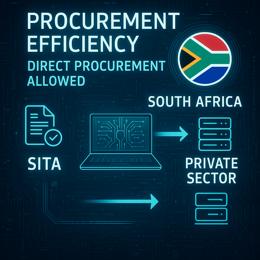Image created by AI
South Africa's Border Management Authority Faces Funding Crisis
South Africa's initiative to revamp its border security through the newly established Border Management Authority (BMA) is facing a severe funding and staffing crisis. The BMA, inaugurated on April 1, 2023, was tasked with the implementation of a comprehensive, integrated border enforcement strategy, taking over responsibilities from a previously fragmented multi-agency architecture. However, despite the proactive shift, the BMA is confronted with major budgetary and operational deficiencies that undermine its ability to safeguard the country’s borders effectively.
Home Affairs Minister Leon Schreiber disclosed to parliament the troubling financial landscape of the BMA. The nascent authority's budget shortage over the Medium-Term Expenditure Framework (MTEF) amounts to a daunting R4.35 billion, stemming from inadequate funding allocations by the National Treasury. Furthermore, the transitioning departments contributed only the necessary budget for staff compensations, failing to cover the full budget required for essential goods and services.
This fiscal shortfall has dramatic implications. Among the most pressing is the dearth of human capital. With an approved structure of 11,115 employees, the BMA stands woefully understaffed—mere 2,566 positions were filled by June 30, 2024, leaving a gap of 8,549 vacancies. This shortfall is not only a numerical challenge but also a strategic one. Minister Schreiber emphasized the immediate need to fill 3,207 positions within the next three years to align with the organizational blueprint. The focus, he pointed out, must be on the ports of entry and critical support roles, crucial for effective governance and operations.
Technology upgrades and the acquisition of essential tools are also urgent matters that currently fall victim to the budget crunch. In the modern age, sophisticated ICT infrastructures are a linchpin in securing borders, enhancing efficiency, and automating processes at ports of entry. However, the BMA's struggle to fund these critical investments stymies progress. Essential operational tools and technologies – patrol vehicles, firearms, communication devices, body-worn cameras, and surveillance equipment – hinge on financial backing, a support that currently wanes.
The BMA's quandary brings into sharp relief the tension between national security imperatives and budgetary realism. Ensuring that the BMA can fulfil its mandate to protect the nation's borders and manage migration effectively is an urgent call to action for South African policymakers and treasurers alike.










